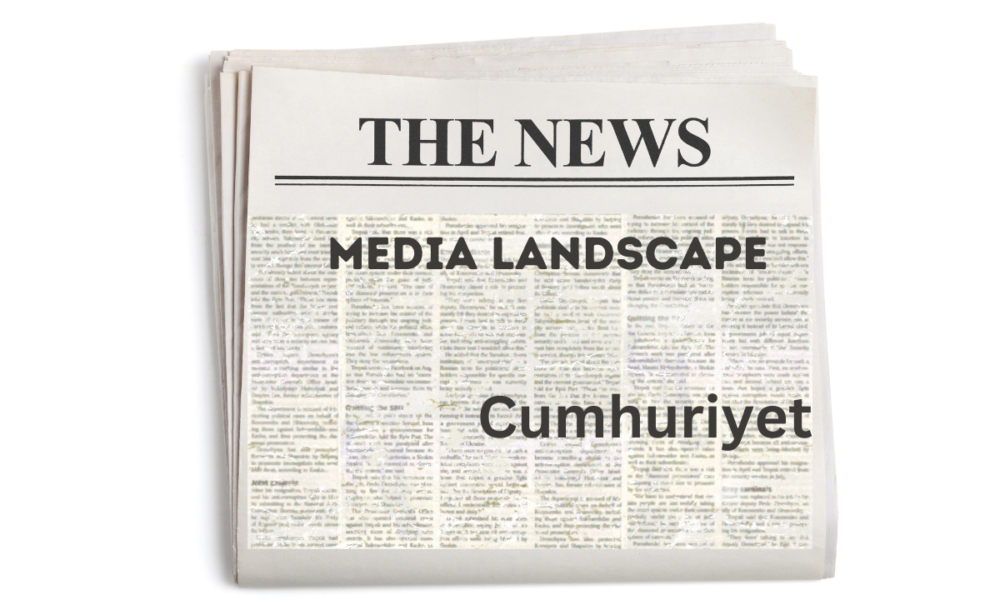Cumhuriyet: A Pillar of Secularism and Press Freedom in Turkey
Introduction to Cumhuriyet
Founded in 1924, just after the Turkish Republic itself, Cumhuriyet, which translates to “Republic” in Turkish, is more than just a newspaper. It represents a cornerstone of Turkey’s media landscape, embodying the country’s dedication to secularism and the freedom of the press.
Evolution of Cumhuriyet: Navigating a Century of Change
From Foundation to a Symbol of Secularism
It was established in 1924, a year after the foundation of the Turkish Republic, to support and promote the new, secular state’s values as envisioned by Mustafa Kemal Atatürk. Initially, it served as a mouthpiece for the propagation of secular and democratic principles, essential to Atatürk’s vision of modernization and reform. Over the decades, It evolved from a simple informational newspaper into a symbol of resistance against any infringement on secular values and press freedom in Turkey.
Cumhuriyet’s Influence on Governance in Turkey
Cumhuriyet, as one of Turkey’s most prominent and historically significant newspapers, has played a substantial role in shaping public discourse and influencing governance in Turkey. While not directly involved in governance, its impact comes from its relentless advocacy for secularism, democracy, and human rights, which are essential to the functioning of a modern state.
Cultural Impact of Cumhuriyet: Shaping Public Discourse and National Identity
Cumhuriyet, with its deep-rooted history intertwined with the modern Turkish Republic, has significantly impacted Turkey’s cultural landscape. This impact is evident in various aspects of Turkish society, from the promotion of secularism and modernization to its influence on the arts and public debate.
- Promoting Secularism and Modern Values
It was established with the explicit mission to support the secular, democratic ideals of Mustafa Kemal Atatürk and the newly founded Turkish Republic. Its editorial content has consistently promoted these principles, contributing to the shaping of a secular national identity. By advocating for a separation of state and religion, It has played a crucial role in reinforcing the cultural shift from the Ottoman Islamic caliphate towards a modern, secular nation-state.
- Literacy and Education
In the early years of the Republic, It placed a strong emphasis on education and literacy, which were critical for the country’s modernization efforts. The newspaper not only reported on educational reforms but also actively participated in the literacy campaign by providing accessible content for new readers. This effort helped broaden the newspaper’s audience and instilled values of informed citizenship, critical for a participatory democracy.
- Platform for Intellectual and Artistic Debate
It has been a platform where intellectuals, writers, and artists could express their thoughts and engage in public discourse. The newspaper has featured articles and criticisms on literature, cinema, and the arts, reflecting and shaping contemporary Turkish culture. By providing a space for such discussions, It has influenced artistic trends and cultural development in Turkey.
- Defender of Press Freedom and Expression
As one of Turkey’s foremost advocates for press freedom, it’s struggles against censorship and its defense of journalistic rights have had a profound cultural impact. This stance has underscored the importance of free expression as a cultural value in Turkish society, often serving as a benchmark for other media outlets in the country.
- Influence on Public Opinion and Social Movements
It’s reporting has influenced public opinion and spurred social movements, particularly about human rights, minority rights, and gender equality. The newspaper’s focus on these issues has helped raise awareness and drive public debates, shaping societal attitudes and legislative changes.
- Nationalism and Multiculturalism
Turkey’s complex identity, straddling Eastern and Western values, has been a recurring theme in it’s content. The newspaper has played a role in navigating these identities, often advocating for a balanced approach that respects Turkey’s diverse cultural heritage while promoting integration into the global community.
- Legacy and Future Challenges
Today, as Turkey faces new cultural and political challenges, It’s role remains as critical as ever. Its commitment to its founding principles helps maintain a cultural dialogue that is essential for the country’s ongoing development and democratic health. Despite facing significant pressures, It continues to influence Turkey’s cultural narrative, championing a vision of the country that upholds its secular and democratic foundations.
Historical Context and Founding Principles
The establishment of it was influenced directly by the founder of modern Turkey, Mustafa Kemal Atatürk. The newspaper’s mission was to echo the secular and progressive values of the newly founded Republic. Known for its in-depth reporting and serious tone, Cumhuriyet quickly became a platform for critical discourse and analysis, often holding the government to account.
Challenges and Controversies
Throughout its history, It has frequently found itself at odds with the Turkish government, particularly on issues relating to secularism and government policy. This adversarial stance has led to numerous legal challenges, financial strains, and pressures on its journalists, including arrests and trials. The newspaper’s commitment to journalistic integrity has often resulted in heightened scrutiny from various governments.
Role During Political Crises
It has been crucial during significant political events, such as the 2016 coup attempt in Turkey. It stood firm in its support for democratic institutions and opposed the coup, emphasizing the newspaper’s role as a defender of democracy. These stances, however, have often resulted in increased pressure from the authorities, manifesting in legal actions and accusations designed to suppress its voice.
Adapting to Digital Media
In response to the changing media landscape, It has embraced digital platforms while continuing its print publication. This transition ensures that it reaches a wider audience, particularly the younger generation, who are more inclined to consume news online. The digital version maintains the same rigorous journalistic standards as its print counterpart.
Future Outlook and Significance
As It continues to navigate the complexities of Turkish politics and media, it remains a symbol of resistance against the encroachment on press freedoms and secular values. Its resilience and adaptability highlight the ongoing relevance and necessity of independent media in Turkey.
Conclusion: Cumhuriyet
Cumhuriyet is not just a newspaper but a legacy of Turkey’s republican principles, continuously advocating for transparency, democracy, and secularism. Its story is a testament to the critical role of free press in maintaining the health and integrity of any democracy.







